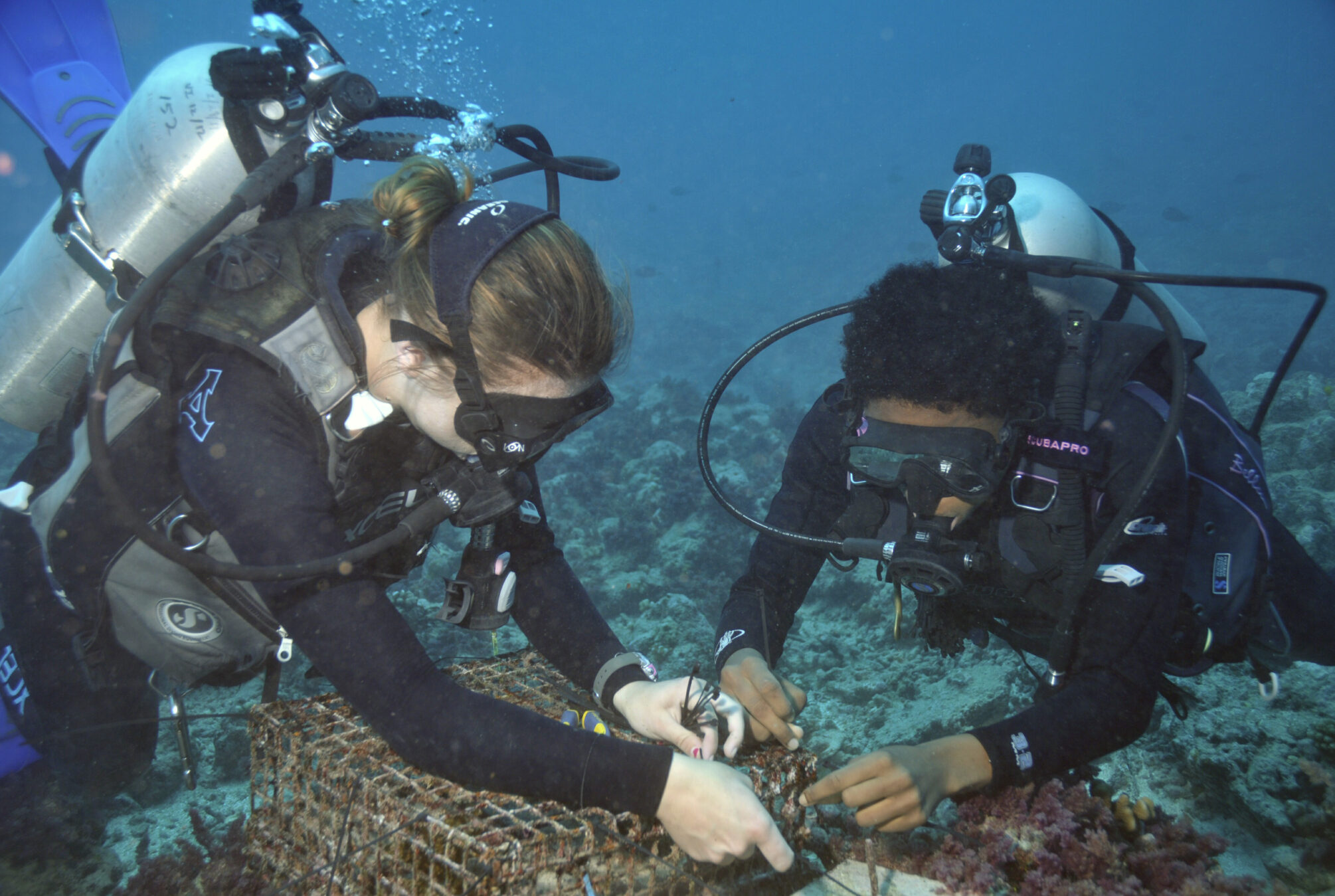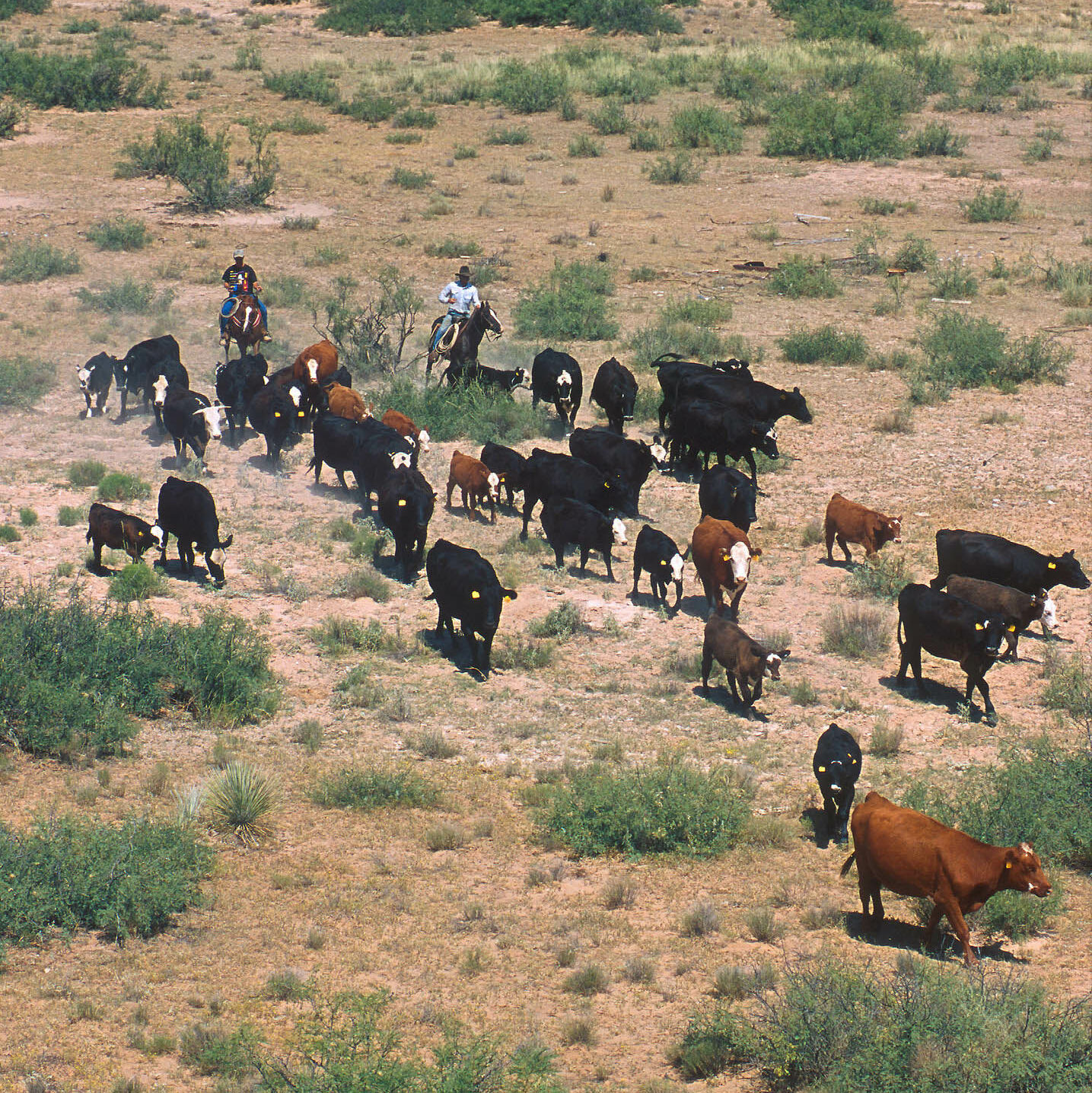The Long-Term Ecological Research (LTER) Network Office is excited to announce that two new synthesis working groups will launch in 2024. Synthesis working groups use long term data from the LTER network and beyond to look for ecological patterns across a wide variety of ecosystems. Our two new synthesis groups cross boundaries in other ways, too—the Consumer Absence Generates Ecological Dissimilarity (CAGED) group crosses the shoreline to look for common community responses to exclusion experiments in both terrestrial and marine systems, while the Assessing the resilience of productivity to climate variability across management and climate gradients group is the first to incorporate data from managed systems alongside LTER data.

Credit: MCR LTER CC BY-4.0
Consumer Absence Generates Ecological Dissimilarity (CAGED): A cross-ecosystem synthesis exploring the consequences of consumer loss on community variability
When researchers at the Moorea Coral Reef LTER put exclosures around small sections of coral reef, one of three things happened. In some cases, corals persisted. In others, algae took over the exclosure, sheltered from herbivorous fishes by the mesh exclosures. In a third scenario, both corals and algae grew together in a mixed community, existing in a state between the two other scenarios.
“You see these different really different communities developing in the same treatment when consumers (herbivores and corallivores) have been kept out,” says postdoctoral scholar Dr. Kelly Speare, one of the proposal authors. She and coauthor Dr. Jamie McDevitt-Irwin, who saw similar results in an exclusion experiment of her own, started to wonder how general this pattern was. They brought in Dr. Sally Koerner, an associate professor at UNC Greensboro, who has worked on exclusion experiments in terrestrial systems across the globe.
Exclusion experiments are common across many different ecosystem types, from undersea exclusion cages in Moorea to large scale enclosures designed to keep rhinos out of vegetation in South Africa. The group plans to use data from exclusion experiments in ecosystems across the world to see if other communities respond similarly to those on reefs. They have already compiled twenty-three such datasets from LTER sites, nearly forty from the Grazing Exclosure Database, plus fourteen from other aquatic ecosystems, and are actively looking for others in underrepresented systems, especially additional aquatic systems and forests.
“The thing that I’m most excited about is getting this opportunity to integrate across the ecosystems and across marine and terrestrial,” says Dr. Speare, noting that she and her coauthors primarily focus on a single ecosystem. “Getting a chance to work on one of these questions that’s really applicable across all different types of ecosystems is really exciting.

Assessing the resilience of productivity to climate variability across management and climate gradients
Ask a farmer about their concerns and they may respond about how the dry summer is decreasing their crop yields. An ecologist, on the other hand, might tell you about how biodiversity is being impacted by climate change across the globe. “Producers and land managers often focus on what they’re doing locally,” says Dr. David Hoover, an ecohydrologist at the USDA Agricultural Research Service. “While ecologists often try to find generalities across ecosystems.”
Dr. Hoover and Dr. Olivia Hajek, a postdoctoral scholar also at the USDA Agricultural Research Service, lead a new LTER Synthesis Working Group that integrates across these disciplines to study the effects of climate change, geography, and management on a huge range of ecosystems—from the last vestiges of native prairie at the Konza Prairie LTER to working rangelands and croplands across the globe.
The project will study the resilience of primary productivity to climate change by combining natural ecosystem data from the LTER with data from the managed agroecosystems in the Long-Term Agroecosystem Network (LTAR). Additional experimental data from the Nutrient Network (NutNet) gives the project truly global reach.
The working group includes experts from each network and spans a wide range of career stages, from seasoned researchers to early career folks eager to gain experience in other systems and networks. “We prioritized having a lot of postdocs and graduate students,” says Dr. Hajek, adding that early career researchers often have the technical chops to perform complex analysis across datasets but still benefit from the system specific expertise of more experienced researchers. “I think it’s going to be really fun to share knowledge between the groups,” adds Dr. Hoover.
The project may play a key role in thinking about how humans can adapt to a changing climate. “In these agroecosystems, we just have so many more dials that we can control, such as adding irrigation in dry years or moving livestock in response to rain” says Dr. Hoover, noting that adaptive management is an emerging practice in many agroecosystems. “Having an approach that combines multiple system types gives us a better sense of how to maintain large-scale resilience in the face of climate change.










